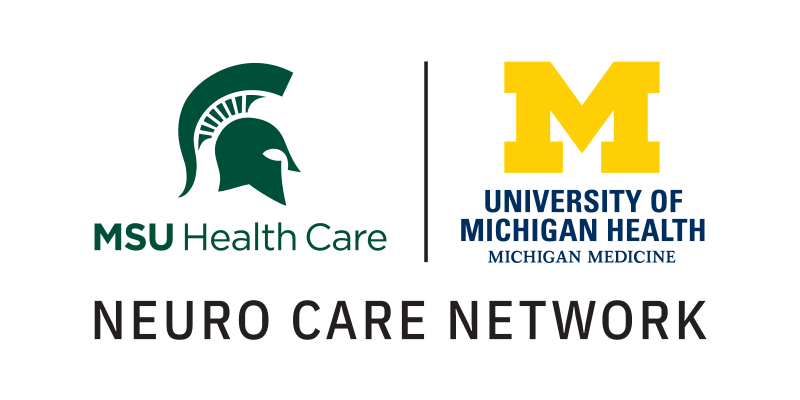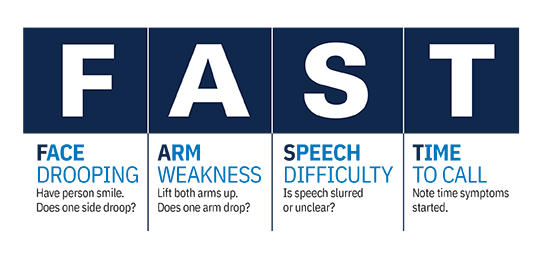
What is a stroke?
A stroke occurs when a blood vessel that carries oxygen and nutrients to the brain is either blocked by a clot or ruptures. When this happens, part of the brain cannot get the oxygen that it needs to survive and begins to die. The effects of a stroke are varying and can differ significantly in severity. Some experience strokes without any long-term effects, whereas others might be faced with a range of issues, including problems with speaking and moving, memory, brain function and emotional distress.
The most important part in limiting the long-term effect of a stroke is how quickly someone who has a stroke can be treated. As the area’s only Comprehensive Stroke Center, UM Health-Sparrow has all of the resources available to treat any type of stroke ... immediately. Patients who come to our Emergency Department with symptoms of a stroke will have initial tests done in under 10 minutes, and when surgery is needed, our stroke patients are in surgery within 90 minutes. No one else in the area can say that.
It is imperative that you and your loved ones recognize the symptoms of a stroke. If you notice any of these symptoms, call 911 immediately.
Stroke Warning Signs: Act FAST

A stroke can happen suddenly and without warning. Recognizing the signs early can make a critical difference. If you or someone else experiences any of these symptoms, call 9-1-1 immediately.
Use these simple tasks to test for symptoms of a stroke:
- Face: Sudden numbness or weakness, especially on one side of the face. Ask the person to smile—does one side of their face droop?
- Arms: Sudden weakness or numbness in one arm. Ask the person to raise both arms—does one arm drift downward?
- Speech: Sudden confusion or trouble speaking. Ask the person to repeat a simple sentence—are the words slurred? Can they repeat the sentence correctly?
- Time: If the person shows any of these symptoms, time is crucial. Call 911 or get to UM Health-Sparrow fast. Brain cells are dying, and immediate treatment is critical.
Remember, acting quickly can make all the difference in recovery.
Use FAST to remember the stroke warning signs.


